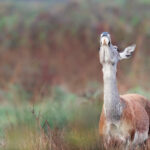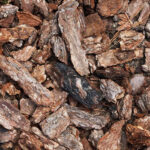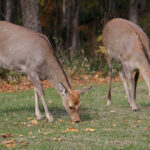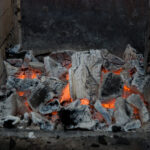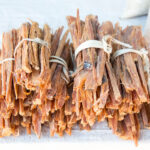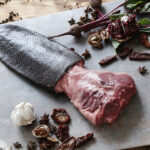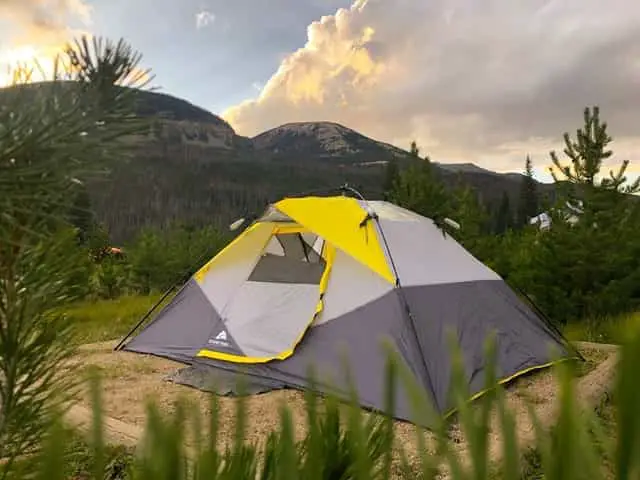
Even if you do not have a phobia about snakes, they can be an unwelcome guest at your campsite.
Campsites are generally fairly remote locations, and you don’t want to have the inconvenience of a snakebite to contend with when camping, not to mention the health implications. How can you avoid a snake encounter while camping?
Table of Contents
How To Avoid Snakes On A Camping Trip
You can avoid snakes while camping but not camping near piles of rocks, don’t camp at the water’s edge, keep your food secure, clear leaf litter away from your campsite, light a campfire, and choose your camping season. Learn about the local snakes, so you know which are dangerous and which are not.
Snakes are probably one of the most maligned and misunderstood members of the animal kingdom.
(I personally LOVE them!)
Many people regard them with an irrational fear that borders on paranoia!
The best method to avoid snakes in the wild is to educate yourself about them and their behavior and remember that you are visitors to their home in the wilderness. We have several strategies you can use that will minimize your snake encounters on your next camping trip.
If you enjoy camping, one has to assume you enjoy the great outdoors and everything it holds! And why should this enjoyment not include snakes and other creepy or crawly wildlife? They are an essential part of the natural world and an integral part of the wilderness.
Rather than approaching the topic of snakes with fear and apprehension, treat them with the same respect and understanding as any other wildlife you may encounter on your camping trip.
Most people have a fear of snakes because of a lack of understanding and knowledge about these fascinating creatures.
We are not advocating that you become a snake lover, but rather that snakes are not feared unnecessarily, which leads to them being killed indiscriminately and can lead to bite accidents.
Knowledge is the first step towards eradicating fear and gaining an understanding of how to avoid snake encounters while camping.
You are not going to escape the possibility of crossing paths with snakes when camping in the wilderness, but you can use strategies to minimize the possibility.
Don’t Camp Near Piles Of Rocks
Rocky outcrops or piles of rocks are as attractive to a snake as a 5-star hotel to a weary traveler! Rocks retain heat at night, which will attract snakes as a place to keep warm in the chill of the night.
Piles of rocks are also attractive to rodents which are common prey items for snakes, so if the warmth of the rocks doesn’t attract the snakes, a rodent population will.
If there is a rocky outcrop near your chosen site, make sure to place your campsite at least 50-feet from the rocky outcrop to avoid any unwelcome encounters.
Likewise, fallen trees and piles of vegetation are also wilderness features you should not camp close to.
Just take a moment to survey your surroundings, and ask yourself ‘if I was a snake, or a mouse, where would I hide?” and avoid those areas!
Don’t Camp Right At The Waters Edge
Water is an attractive location to pitch camp. Unfortunately, the same characteristics that make it appealing to you also appeal to local wildlife, including snakes.
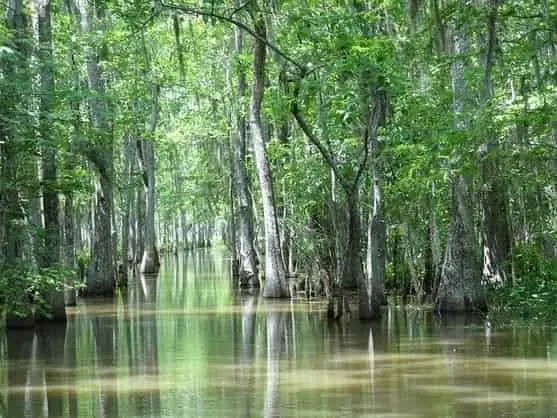
Rodents and other animals come to the water to drink and use the water’s edge as a thoroughfare or common pathway.
Snakes know that there is often a ready supply of food near water and will frequent these locations searching for a meal.
This is especially common in hot and humid areas near the equator, where many species of water snakes call home.
Instead, set your camp back a bit from the water’s edge to avoid attracting rodents as well as snakes into your campsite.
Store Your Food Securely
Storing your food correctly while camping will go a long way to avoiding chance snake encounters. The snakes are not attracted to your food, but other creatures such as rodents are, and they are food for snakes.
This is probably the most overlooked aspect of avoiding snakes, especially if you are long-term camping!
Rodents leave scent trails, and if you encourage them in your campsite by leaving food exposed or readily available, the snakes may follow them while on the hunt, and you may have an unintended reptile encounter in your camp.
The best way to store campsite food is in an airtight container that limits the scent that can escape, thus limiting attracting rodents and other snake food creatures to your campsite. If you have a vehicle with you, an excellent place to store your food is inside the car.
Not to mention, proper food storage is always best practice when camping because it will deter other curious animals such as bears, mountain lions, coyotes, and birds of prey.
Clear Away Leaf Litter From Your Campsite
Leaf litter is a common ambush location that snakes use when looking for prey. Before laying out your tents or sleeping bags, clear away the leaf litter in a large radius around your site.
You can use a small broom or rake, tr simply a stick to push away the leaf litter, rocks, and other debris.
Most animals, including rodents and snakes, are hesitant to cross open ground because it makes them vulnerable to predations from other creatures.
Having a cleared area around your campsite will act like a barrier that will discourage the local wildlife from entering the campsite.
Light A Campfire
Most wild animals associate fire and smoke with danger and will keep away from this perceived hazard.
Snakes like heat, but like other animals, they don’t like fire. They can detect the smoke with their heightened scent receptors and will generally avoid a fire.
Make sure you put the fire out before turning in for the night. You don’t want to be the cause of a dangerous wilderness wildfire!
Choose Your Camping Season
Snakes prefer warmer times of year for heightened activity, which means they are more active in the spring and summer months.
Choosing to camp in the cooler months of the year will reduce your chances of encountering snakes at your campsite.
And if you are really frightened of snakes, just do some research on the area. Most northern latitude locations have few if any snakes.
For example, if you are camping in Florida where I’m from, we have 6 species of venomous snakes here and over 40 species total!
But if you are camping in Alaska, there are no native species of snakes present in the entire state!
Know Your Local Snakes
Not all snakes are dangerous, and knowing the difference between dangerous snakes and harmless snakes in your region is crucial knowledge to have when camping.
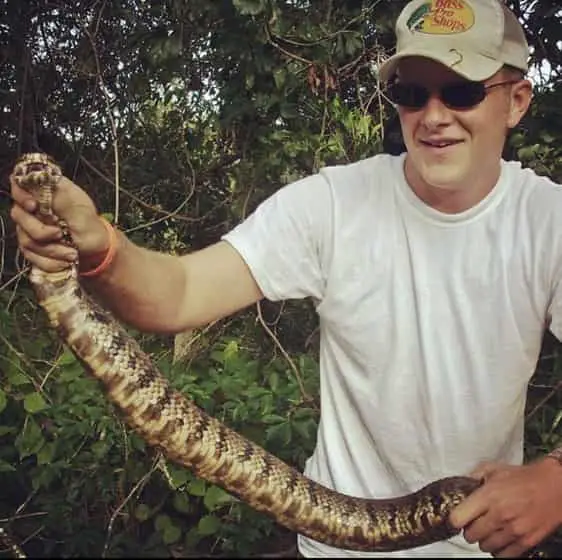
Educate yourself about the local snakes in the area where you will be camping. Learn to distinguish between dangerous species and harmless species.
Non-dangerous snakes you can simply relocate to the perimeter of your campsite and release a non-venomous snake nearby will help to keep rodents at bay.
If you encounter a dangerous snake, do not try and kill it. It is very common for snake bites to occur while trying to dispatch a snake with a stick or other object. The snake sees this as an attack and will become aggressive.
Rather use a long enough stick with a hook or a V-shape to lift the snake and relocate it some distance from your campsite.
Most snakes do not like being disturbed, so sometimes, even some gentle coaxing with a stick will cause the snake to leave of its own accord.
How To Keep Snakes Away When Sleeping On The Ground
If you are camping in areas known for snakes, sleeping on the ground is not the best sleeping arrangement. Rather try to sleep in a tent which you can secure from unwanted guests intruding at night.
Snakes can be attracted to body heat as a source of warmth and have been known to slide into the sleeping bags of unwary campers. It’s rare, but it has happened!
If you have no other alternative, then you can try these strategies to minimize the risk of a snake sidling up to you for warmth.
- Sleep close to your campfire. Snakes know the difference between body heat and the heat from a fire. They are less likely to venture close to a fire. Just be certain you do not roll into the fire in the night. Place a rock to two between you and the fire to prevent rolling over into the embers.
- Use a bug-proof sleeping bag. Many sleeping bags are available that have zip-over bug nets to prevent bugs from accessing your sleeping bag. These will also keep snakes out of your sleeping bag.
- Clear leaf litter well away from your sleeping area. A wide cleared area around your sleeping area will help discourage critters of many kinds from invading your sleep.
How Do You Keep Snakes Away At Night?
Snakes do not like to frequent places where humans are because they have a natural fear of us, the same as all other wildlife, and they do not consider us as food.
Snakes come close to human habitation in search of food and shelter. The best way to keep snakes away at night is to limit places for them to hide and discourage their prey from your campsite. This will give them no reason to enter your camping area, and they should steer clear.
Ensure the campsite is neat and tidy with no place for snakes to hide nearby, and ensure all food is secured in airtight packaging. Keeping the food securely stashed will make sure rodents are not attracted to your campsite and, in turn, attract the snakes.
Do Snake Repellants Work?
Snake repellants do not work. I repeat, snake repellants don’t work!
They are a gimmick that is sold to uninformed campers, and you should not put any stock in these items. They will not keep snakes away from your campsite or your home.
The best method to prevent snake encounters is to use your eyes and ears while in the wild. Slow down, be observant.
Give thought to where you walk and step, store your food properly and avoid locations and areas that snakes may call home.
Conclusion
Despite measures taken to dissuade snakes from your campsite, there is always the possibility that one of these reptiles could wander into your space. This is where it is crucial to know the local snakes and which ones pose a risk and which ones don’t.
If necessary, a stick of suitable length, used with gentleness, is often enough to persuade the snake to leave the area. In many cases, you can simply leave them be.
The best method to keeping your camp snake-free is to keep your camp rodent-free!
And lastly, if you see a snake, don’t panic. They are actually very calm and docile creatures and almost never bite unprovoked.
Take time to admire and respect these creatures and they will do the same in return.
